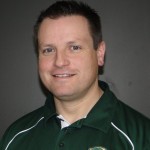About Us
Marc Applebaum, Ph.D.
Marc Applebaum received his Ph.D. in Psychology from Saybrook University in 2009, after completing a Independent Ph.D. program dir ected by Amedeo Giorgi. He worked as a clinical case manager in San Francisco’s community mental health system and has more than a decade of organizational consulting experience as an executive coach in the San Francisco Bay Area. He is a member of the Psychology Faculty at Saybrook Graduate School, teaching qualitative psychological research methods, particularly descriptive phenomenological research grounded in the work of Husserl and Merleau-Ponty, and hermeneutic research informed by Ricoeur’s work. Applebaum’s research focuses on themes in cultural, organizational, and religious psychology. He is a member of the Editorial Board of The Humanistic Psychologist and the Journal of Humanistic Psychology. and reviews submissions for journals including the Journal of Phenomenological Psychology the Journal of Consciousness Studies, and the Journal of Theoretical and Philosophical Psychology.
ected by Amedeo Giorgi. He worked as a clinical case manager in San Francisco’s community mental health system and has more than a decade of organizational consulting experience as an executive coach in the San Francisco Bay Area. He is a member of the Psychology Faculty at Saybrook Graduate School, teaching qualitative psychological research methods, particularly descriptive phenomenological research grounded in the work of Husserl and Merleau-Ponty, and hermeneutic research informed by Ricoeur’s work. Applebaum’s research focuses on themes in cultural, organizational, and religious psychology. He is a member of the Editorial Board of The Humanistic Psychologist and the Journal of Humanistic Psychology. and reviews submissions for journals including the Journal of Phenomenological Psychology the Journal of Consciousness Studies, and the Journal of Theoretical and Philosophical Psychology.
Magnus Englander received his Ph.D. in Psychology from Saybrook University in 2001. His dissertation was directed by Amedeo Giorgi. He is a representative of the new generation of phenomenological psychologists. Englander has taught at various universities in the United States and Sweden, becoming a permanent faculty member in the Department of Social Work at Malmö University in Malmö, Sweden in 2006, and is a Saybrook faculty member. Englander teaches courses on the phenomenological method as modified for human scientific research, and his research focuses on the phenomenological psychological study of emotional memories, empathy, and interpersonal relations. For the last decade Englander has developed and implemented phenomenologically-based training programs in empathic communication for students and professionals. Englander is the author of multiple methodological articles and book chapters related to phenomenological psychology. and edited the 2018 volume Phenomenology and the Social Context of Psychiatry: Social Relations, Psychopathology, and Husserl’s Philosophy. He serves as book review editor for the Journal of Phenomenological Psychology.
Susi Ferrarello received her PhD at the Université de Paris La Sorbonne in 2008, and currently teaches at the Rome Center of Loyola University and Saybrook Graduate School. A specialist in Husserl’s phenomenological philosophy, her research focuses primarily on the ethical dimensions of Husserl’s work. She has authored scholarly publications in Italian, French, and English including the book Il Progetto Etico e l’idea di Scienza, an examination of Husserl’s ethics, and a range of articles exploring related themes in the philosophies of Husserl and William James. She is both the Editor and a contributed a chapter to the book Intersubjectivity and Values, forthcoming from Cambridge Scholar Publishing.
Rodger Broomé is Assistant Professor and Faculty Chair of the Department of Emergency Services at Utah Valley University. Building upon a 22-year career as an active police officer, firefighter, and emergency medical technician, he is a scholar in the field of emergency services administration. He is a public safety psychologist who focuses on teaching emergency responder leadership and managers. Amedeo Giorgi directed Broomé’s study of phenomenological psychology at Saybrook University. Broomé uses the descriptive phenomenological method to study human responses to crises, particularly professional emergency responders.
Why “back to the things themselves”?
Husserl’s phenomenology is epitomized in his call for a return “back to the things themselves,” “Zurück zu den Sachen selbst.” We view this “return” as a shared project. The return is intersubjective and not solipsistic: we return to the things in order to dialogue together about them together in the contexts of our philosophical, psychological, and other work. The impetus for this blog originated in conversations among colleagues who had studied phenomenological psychology with Amedeo Giorgi. Our line-by-line reading of Husserl or Merleau-Ponty with him opened the door to the phenomenological tradition and its implications for the human sciences, and encouraged us to bring philosophers into the conversation.
As group of psychologist and philosophers–and as an extension of our teaching, research, and scholarly writing–we’re turning to this online platform in order to broaden the discussion in a more conversational voice. In doing so, we will be speaking from a largely Husserlian foundation–yet one that’s open to the richness of the phenomenological tradition’s descriptive and hermeneutic dimensions, and is intrinsically interdisciplinary. More than anything else, we hope to contribute to what Husserl envisioned as “the progressive development of a phenomenological community” (in Fink, 1995, translated by Bruzina, p. 191).



 Follow
Follow email
email